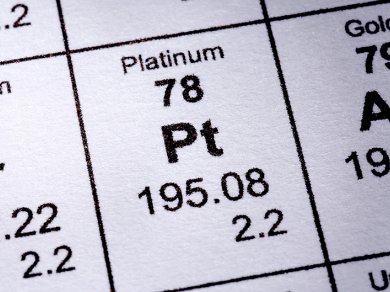A new approach to the catalytic component of fuel cell membranes using nanoparticulate platinum supported on a titanium-tungsten oxide could lead to tougher devices that are also more effective in converting fuel to electricity, according to US researchers.
Current membrane catalysts are not suitable for commercial exploitation in proton-exchange membrane fuel cells. The development could open up this technology to automotive and portable electronics applications as proton-exchange membrane fuel cells could theoretically be highly efficient, operate at close to room temperature, and have zero local pollutant emissions.
- Highly Stable and CO-Tolerant Pt/Ti0.7W0.3O2 Electrocatalyst for Proton-Exchange Membrane Fuel Cells
D. Wang, C. V. Subban, H. Wang, E. Rus, F. J. DiSalvo, H. D. Abrua,
J. Am. Chem. Soc. 2010, 132(30), 10218–10220.
DOI: 10.1021/ja102931d



